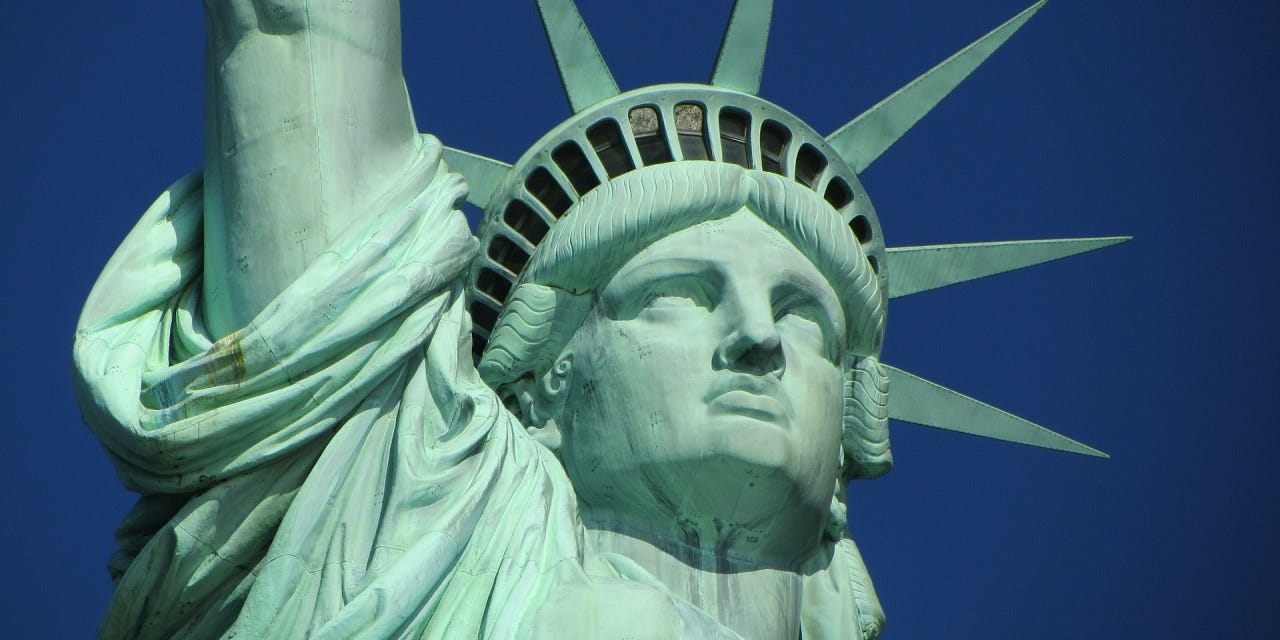The Unnecessary Conflict Between Liberty and Equality
Liberty and equality, properly understood, not only go hand-in-hand but are symbiotic. Each requires the other to truly exist.
In many of my political science classes over my first year of studies in political theory, there has been a constant discussion about the conflict of liberty and equality. Yet, I continue to feel there are certain assumptions baked into this dilemma.
For one thing, equality is generally defined as equality of outcomes or, at least, a general sense of equity in outcomes. Ronald Dworkin, an American philosopher cited quite regularly in many of my classes, often operates from this viewpoint in his writings. He asserts a general principle that government, "Must show equal concern for the fate of every person," and often denounces laissez-faire as a complete failure for ignoring this principle.
Arguments such as those made by Dworkin demonstrate that this notion of equality cannot be reconciled with liberty unless liberty itself is redefined. But I take a different tact. There are many more ways to view equality than simply as parity in outcomes.
It is a fact in life that people are born unequal in their faculties, their abilities, and have different desires and different ideas of what the "good life" entails. So, if people are not actually equal in these things, and if these things are the ingredients for positive outcomes, then you cannot create parity in outcomes without using government to dramatically alter the natural order of things.
To put it simply, a government order whose goal is total distributive justice makes constructs of men, forcibly lifting some beyond their abilities while forcibly tearing down the success of others and then declaring this state of coercive disruption of human reality "equality."
So, what is the answer? Is the operative American phrase, "All men are created equal," a lie? Again, only if we accept the assumption that equality must mean equality of outcomes, and only if we accept the narrow definition of Dworkin's general principle of equal concern.
If we move beyond equality of outcomes and instead ground our understandings of equality in the notions of equal opportunity and equality in the eyes of the law, the paradigm of consideration shifts.
Equality becomes something far more real, philosophical, and attainable if it becomes more than a measuring stick for outcomes. This also allows for a far more expansive and realistic view of Dworkin's principle for equal concern.
While I do have equal concern for the fate of my fellow men, I assert that the notion of human dignity demands that I recognize each human being's right to work out their own fate and, instead of wielding what power might be at my fingertips to alter that fate towards what I consider to be the "good life," I instead turn my efforts towards maximizing individual liberty and crafting a sphere where everyone is free to seek out their fate, to pursue happiness.
Thus, in my view, equality has far less to do with arbitrary views of correct outcomes and far more to do with George Washington's desire to craft a country where, "Everyone will sit under their own vine and under their own fig tree, and no one will make them afraid." In this view, liberty and equality are not combatants but principles that must go hand in hand for either to truly exist. Properly understood, there is no conflict between liberty and equality but a necessary symbiotic relationship.
There is no liberty in a country that does not endeavor to create an atmosphere that engenders to afford its citizens an equal opportunity for success and secures equal footing in the eyes of the law. And there cannot be equal opportunity for success nor the establishment of the rule of law if individual liberty is not held as the highest end of government.



